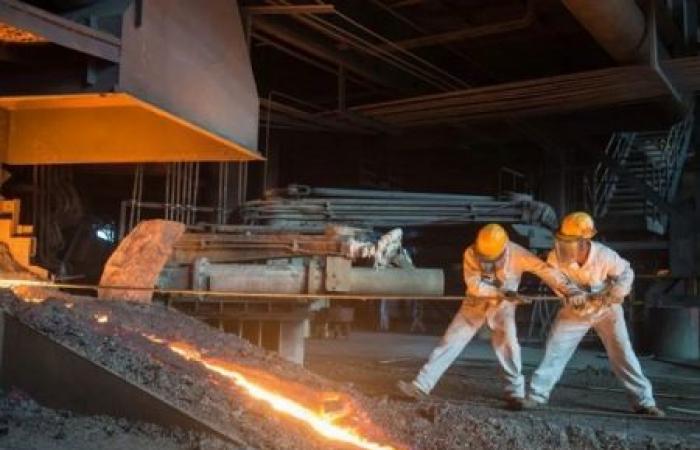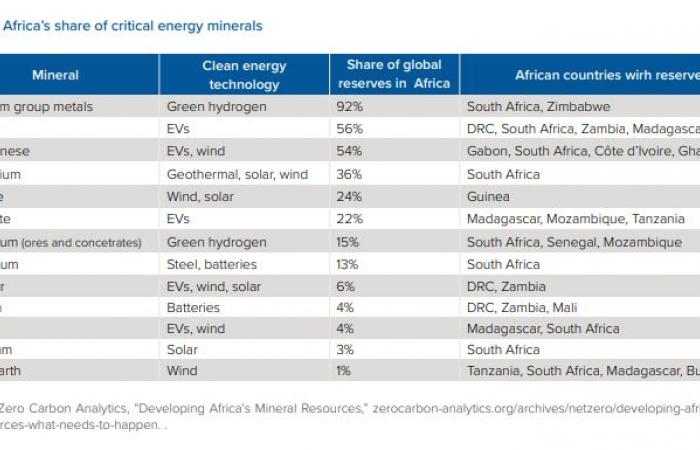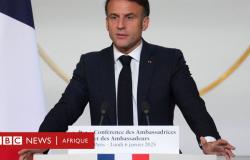(Ecofin Agency) – Between 2019 and 2022, Indonesia tripled investments intended for local mineral processing. However, Africa only attracted 2.8% of FDI allocated worldwide to the processing of critical minerals between 2019 and 2023, even though the continent hosts 30% of global reserves.
Indonesia’s experience in developing a local mineral processing industry offers several lessons to African mining countries. A report from the American think tank Atlantic Council published in December 2024 presents these lessons, emphasizing the difficulty of identically replicating the Indonesian strategy on the continent.
Titled “Resource nationalism and downstreaming: Lessons for African producers of critical minerals from Indonesia,” the report indicates that Indonesia has leveraged its central role in global supply to become a giant in nickel processing. While the country hosts 42% of the world’s reserves, the government has implemented a gradual ban on exports of raw nickel, introduced in 2014 and then reinforced in 2020.
This policy has made it possible to increase investments in the processing sector. From 2019 to 2022, investments in mineral processing infrastructure increased from $3.6 billion to $11 billion in Indonesia. As of July 2023, the country had 43 operating nickel smelters, with 28 more under construction and 24 planned. This proliferation of factories is mainly based on the operation of coal-fired power stations providing the energy necessary for the transformation of nickel.
However, the Indonesian government has not achieved the same feat with other resources, notably bauxite and copper. For the latter, the paper explains that 96% of the value in the copper supply chain is created at the extraction and concentration stages, making local refining less attractive in terms of profitability. In 2014, the ban on the export of raw copper led to a 35% drop in national production. For bauxite, the ban simply led the country’s customers to turn to other suppliers, notably Guinea and Australia.
Africa must rely on its own strengths
While export bans are increasing in Africa for critical minerals, in Ghana, Zimbabwe and even Namibia, the Atlantic Council report recommends another path to the continent. According to the authors, the African Continental Free Trade Area (AfCFTA) and the creation of special economic zones (SEZs) are two levers that African countries rich in critical minerals can use to promote investments in local processing.
Africa certainly hosts 30% of critical mineral reserves, but these reserves are distributed in more or less significant quantities in different countries. The authors of the report emphasize that this unequal distribution is an obstacle to investments in the installation of processing units. The report therefore recommends consolidating cross-border supplies to create a unified market, capable of justifying the massive investments necessary for industrialization.
« Leverage the African Continental Free Trade Area to accelerate the formation of continental commodity markets capable of attracting international investment. The AfCFTA offers significant potential to support the development of local mineral processing industries in Africa by expanding the local market ”, says the report.
In June 2024, a report has already highlighted the benefits of consolidating the production of critical metals in Africa. According to this document published by Tralac, regional collaboration would allow African countries to influence global supply and strengthen their negotiating power, thus attracting investments in local processing plants and refineries. This can be combined with the creation of special economic zones for minerals, which would provide structured environments with tailored policies that can attract investments.
The DRC and Zambia on one side, with their agreement on the installation of an SEZ for the production of electric batteries, and South Africa on the other, with its Platinum Valley project aimed at stimulating the creation of an integrated ecosystem for hydrogen thanks to its reserves of platinum group metals, are cited as examples. It is also about identifying metals offering local processing opportunities with high profitability potential and accessible requirements, both in terms of infrastructure (energy and transport) and technologies.
« The energy requirements for mineral processing are exceptionally high and far exceed the energy requirements for extraction. For example, mining bauxite consumes only about 34 kilowatt hours (kWh) per metric ton, while refining it into aluminum requires more than 3,000 kWh per metric ton », Underlines the document.
The Tralac and Atlantic Council reports do not indicate how to concretely implement the proposed strategy, when the continent’s main mining projects are owned by foreign mining companies. Moreover, China now dominates the refining of critical metals, but its main customers are now looking to develop processing infrastructure directly in Europe in the United States. In this context, African countries must ask themselves whether investing heavily in local processing remains the best option, or whether it would be wiser to strengthen their position in extraction and export while negotiating better trade terms.
Emiliano Tossou
Also read:
07/25/2024 – Critical minerals: Africa struggles to attract FDI for local processing (report)







